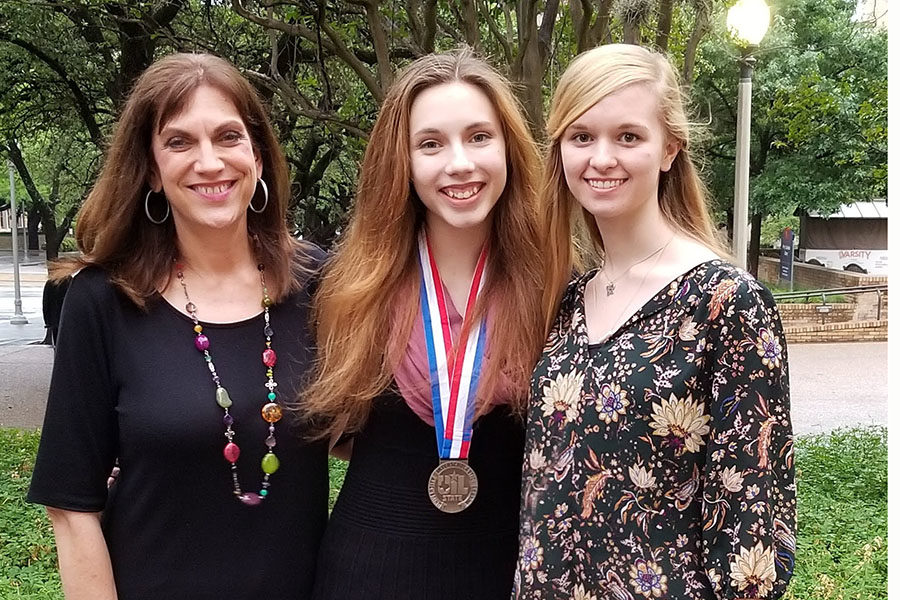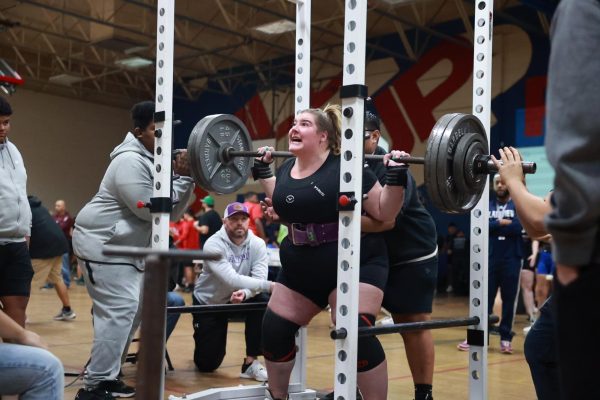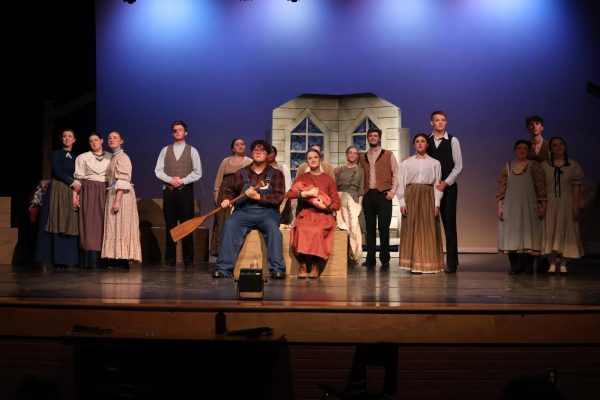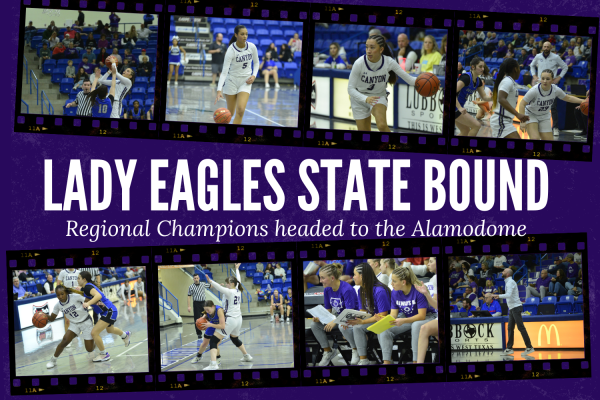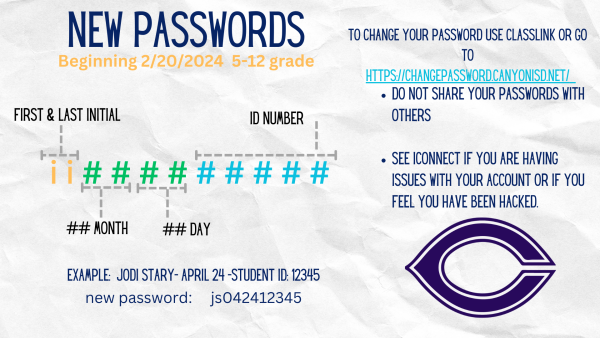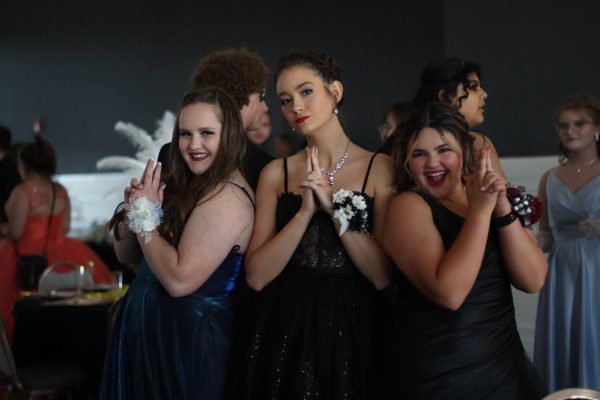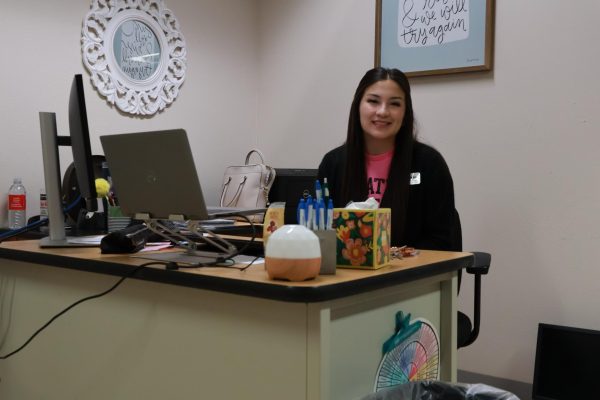Junior, sophomore compete at UIL State Academic Meet
UIL journalism coach Laura Smith celebrates with junior Erin Sheffield, who won a silver medal, and sophomore Macy McClish after both competed in the State UIL Academic Meet in Austin May 4.
Junior Erin Sheffield and sophomore Macy McClish competed at the UIL State Academic Meet May 3-5 at the University of Texas in Austin. Sheffield placed second in news writing and McClish competed in feature writing.
“It kind of gives you a rush,” McClish said. “You have a lot of pressure on you to write a whole story in an hour and make sure it’s right with grammar and punctuation. But competing is pretty cool. It’s not my whole world, but it’s a nice experience”
McClish, who is a staff reporter for the school newspaper, said the competition wasn’t too stressful for her.
“I could kind of sense some of the other people had anxiety about it,” McClish said. “But I was happy making it his far so I wasn’t concerned about how I would place. I was just happy to get the experience.”
Just going through all the meets, I’ve gotten to see my writing improve, and I’ve been able to see how I rank against other people
— Macy McClish, 10
McClish placed first in the district meet then second in the regional contest to advance to state.
“I feel like this gave me the opportunity to go against some really great writers,” McClish said. “Just going through all the meets, I’ve gotten to see my writing improve, and I’ve been able to see how I rank against other people.”
McClish said she wasn’t expecting to make it to regionals, much less state.
“I was put on a new story category that I had maybe written once,” McClish said. “So advancing as well as I did as much as I did was a huge surprise to me.”
This was Sheffield’s third year at the UIL State Academic Meet.
“In news writing I’ve gone to state every year,” Sheffield said. “My first year I won first place, my sophomore year I won fifth place, and this year I took home the silver medal.”
Sheffield said she is in no way disattisfied with the fact she got second place.
“It’s still something I’m happy with,” Sheffield said. “It’s still something I can take home and learn from and ultimately, that’s the point of all this.”
Leading into state, Sheffield said the main preparation that precedes this whole process comes from using practice prompts from previous years.
It’s still something I can take home and learn from and ultimately that’s the point of all this.
— Erin Sheffield
“I like working on the state ones, and I try to put myself under constraints to recreate the stress of actually competing,” Sheffield said. “Like instead of writing a prompt in 45 minutes, which is what you do when you actually compete, I’ll give myself 30 minutes. Or I’ll turn on loud music or go in a really loud classroom. Things like that, just so I can stress myself out and keep adding challenges and keep finding ways I need to improve so that if something happens at a meet I know how to deal with it because I’ve practiced doing that as well.”
Now a co-editor-in-chief of the The Eagle’s Tale, Sheffield said news writing was the first time she found something she thought she was good at.
“It’s almost mathematical, but it still has the art of writing,” Sheffield said. “There are so many components to it and so many things you can mess up–putting in tiny words like ‘that,’ ‘they’re,”this’ can knock you down a place. The way you phrase your lead matters. You can move two words around or pick a synonym and it will affect your place. But if you can just get everything straight, it’s like in algebra when you finally work out a problem you’ve been working on for 15 minutes. All the stars align, and it’s immediately and deeply satisfying.”
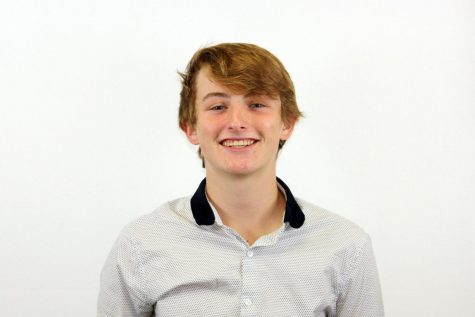
Hello everybody! I'm a senior, and this will be my third and final year on staff. I will be one of the three editors-in-chief this year on The Eagle's Tale. Most of my work this year will be in news and sports. When I'm not at school or work, I love spending...
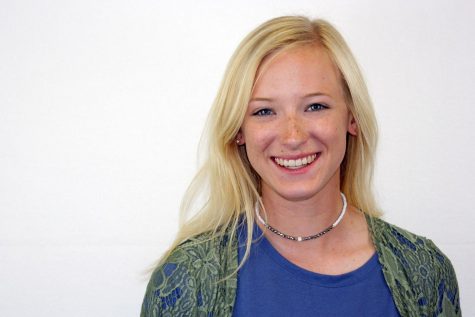
Hi there! I am a senior, and this is my third year on staff and second as editor-in-chief. I am choir president and a member of the varsity and show choirs, and in theater, I participate in musical and the One-Act Play competition. I am a self-proclaimed...

